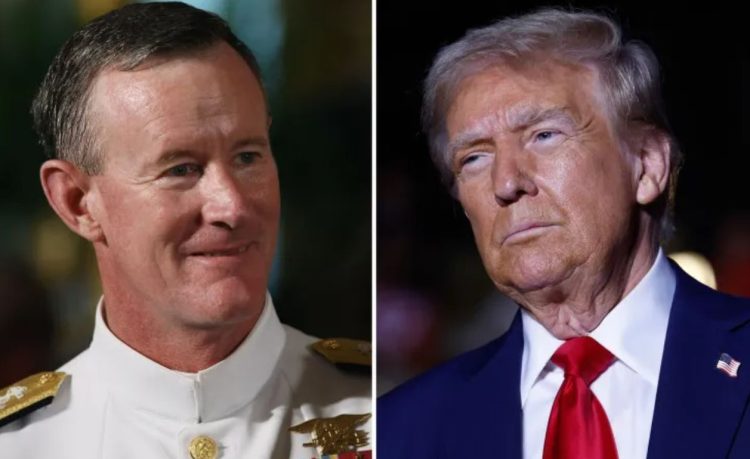In February 2020, McRaven criticized Trump’s decision to dismiss acting Director of National Intelligence Joseph Maguire, remarking, “As Americans, we should be frightened — deeply afraid for the future of the nation.”
This comment reflected his apprehension about the administration’s direction and its implications for national security.
The most recent public anti-Trump comment from Admiral McRaven was made on October 29, 2024, when, in a Wall Street Journal op-ed, McRaven criticized Donald Trump’s behavior and leadership, stating that Trump has “consistently violated every principle of good leadership”.
Here is what SOFREP founder and Editor in Chief Brandon Webb has to say about the matter:
Admiral McRaven called @realDonaldTrump a ‘teenager’—but let’s not forget that under his command, SEAL Team 6 had its own serious discipline, and ethics failures. Leadership isn’t about partisan soundbites; it’s about accountability. Let’s hold all leaders to the same standard.
— Brandon Webb (@BrandonTWebb) March 4, 2025
SOCOM Under McRaven: Discipline and Ethics Concerns
While Admiral William McRaven has never been formally charged with war crimes, his military career has been shadowed by allegations and criticisms related to controversial operations during the “War on Terror.” As a senior leader overseeing special operations forces, he was linked to missions that some argue crossed ethical and legal lines. One of the most serious allegations stems from his command of Task Force 121, a secretive special operations unit accused of engaging in torture at Camp NAMA in Baghdad. Reports suggest detainees were subjected to beatings, electric shocks, sleep deprivation, and even confinement in dog kennels.
Additionally, McRaven authorized a 2009 missile strike in al-Majalah, Yemen, that killed 55 people, including 14 women and 21 children.
In another controversial operation, JSOC soldiers under his oversight conducted a night raid in Gardez, Afghanistan, where seven civilians, including two pregnant women, were killed. Some reports claim that the soldiers attempted to cover up the incident. Throughout Iraq and Afghanistan, JSOC units under his command were involved in an extensive campaign of night raids, reportedly carrying out 20-25 missions per night in Iraq and 10-12 in Afghanistan. These raids, while effective at targeting insurgents, also led to accusations of wrongful detainment and mistreatment of innocent civilians.
McRaven’s defenders argue that these actions were part of the harsh realities of counterterrorism warfare, where split-second decisions can mean life or death. However, critics contend that these operations often blurred the line between necessary military action and human rights violations. While McRaven remains widely respected for his leadership and operational success, these allegations continue to fuel debate about the ethical and legal implications of modern warfare.
Wrapping Up
Admiral William McRaven’s legacy is multifaceted. His willingness to publicly challenge a sitting president reflects a deep commitment to his personal beliefs regarding democratic principles and ethical leadership. Concurrently, his tenure overseeing special operations forces was marked by both remarkable successes and significant challenges related to discipline and ethics.
This duality reminds us of the complexities inherent in leadership roles, especially within the world of national security and military operations.
—
**What do you think? Sound off in the Comments. Admiral McRaven, we’d love to hear your thoughts and opinions as well.










COMMENTS